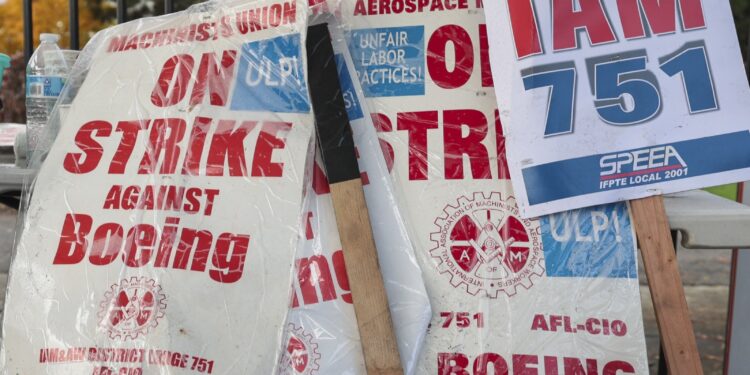Over 3,000 Boeing workers in the Midwest walked off the job at midnight on Monday, following the collapse of contract negotiations that union leaders say failed to meet the needs of the skilled workforce behind some of the nation’s key defense systems.
The strike involves workers at Boeing’s manufacturing facilities in St. Louis and St. Charles, Missouri, and Mascoutah, Illinois, plants that are central to the production of fighter jets and other aerospace defense equipment. The move comes less than a year after a separate Boeing labor dispute led to a 53-day strike by commercial aircraft workers.
Union officials with the International Association of Machinists and Aerospace Workers (IAM) said the company’s revised four-year agreement was rejected after a one-week cooling-off period. Despite including a 20% wage increase over the life of the contract, the offer was seen by workers as falling short of the security and recognition they expected.
IAM Midwest Territory General Vice President Sam Cicinelli said the workers “build the aircraft and defense systems that keep our country safe” and believe they “deserve nothing less than a contract that keeps their families secure and recognizes their unmatched expertise.”
Boeing, for its part, acknowledged the rejection of the latest proposal and said it was prepared for the strike. Dan Gillian, Boeing’s Air Dominance vice president and St. Louis site lead, said the company was “disappointed our employees rejected an offer that featured 40% average wage growth and resolved their primary issue on alternative work schedules.” Boeing also confirmed that contingency plans were in place to ensure that non-striking staff could continue supporting operations and fulfilling customer orders.
The company has been under scrutiny following a series of high-profile safety incidents, including the two fatal 737 Max crashes in 2018 and 2019, and a more recent Dreamliner crash involving Air India in June. While Boeing reported some financial recovery in its latest earnings release, cutting second-quarter losses to $611 million from $1.44 billion the previous year, confidence among workers and the public remains fragile.
Shares of Boeing Co. slipped slightly ahead of Monday’s opening bell, as the strike added a new layer of uncertainty to the aerospace giant’s ongoing efforts to rebuild trust and stabilize its operations.







